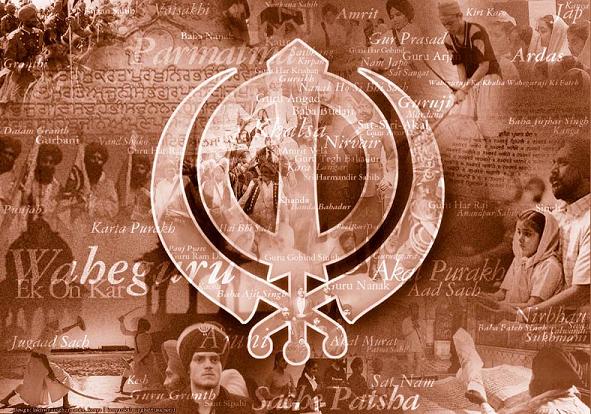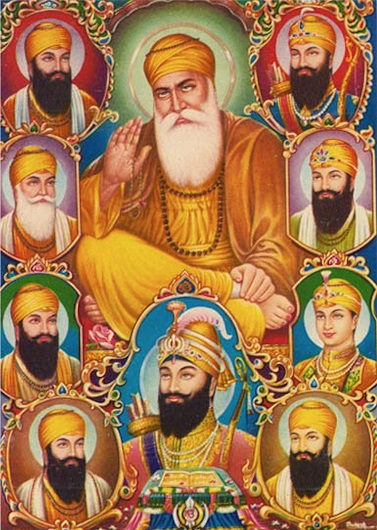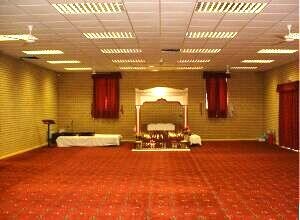
Sikh Missionary Society (U.K.)
ਸਿੱਖ ਮਿਸ਼ਨਰੀ ਸੁਸਾਇਟੀ (ਯੂ.ਕੇ.)
Remembering Third Sikh Ghalughara (Massacre) of June 1984

In June 1984, Indian Prime Minister, Indira Gandhi, was able to ignore all constitutional safeguards and misused the army and state agencies to start prolonged state suppression of the most loyal Indian minority, the Sikhs of Panjab.
Earlier events from 1947 to June 1984 had kept reminding the Sikhs that their survival depended on continual assertion of their religio-cultural identity. The Panjabi Suba agitation should not have been made necessary to save Panjabi language and culture.
In 1947, the administrative power in India passed on from the white sahibs to the brown sahibs. However, the vast majority of Indians and minorities never gained true freedom from centralised colonial style institutions and rule, except that it was no longer from London but from Delhi. Therefore, for the Sikhs, the freedom struggle empowered by the egalitarian socio-political revolution started by Guru Nanak Sahib against any form of totalitarian rule, continued after the partition of the Indian sub-continent in 1947.
Pre-independence promises made to the Sikhs were conveniently forgotten and the Sikh case continues to be a running sore. The need for the Anandpur Sahib Resolution (1973), with a list of Sikh demands as a reminder, was felt by the Sikh nation. Then followed a sequence of events leading to the massive blood-shed in 1984 and the following decade. Operation Blue Star attack on Darbar Sahib and about 40 other Gurdwaras, was carried out between 1 and 10 June 1984. In the months that followed, a clean-up operation code-named Operation Woodrose was started throughout Punjab to prevent the outbreak of widespread public protest in the state.
The two army operations were in the nature of army invasion of the Sikh homeland. Paradoxically, the 1984 army action against Panjab also reminded the Sikhs not only of Jang Hind-Panjab after Maharaja Ranjit Singh but also of their nationhood. That they are with the Indian diversity by own free choice as a distinct people.
The scale of bloodshed during and after June 1984, the extra-judicial killings in the years that followed, justice delayed for decades and the ready use of draconian laws against the Sikhs, continue to add to the Sikh resolve to assert own identity and legal rights. Those rights include the right to self-determination as a democratic, historical and legal choice.
Commemorate the Martyrdom of Shri Guru Arjan Dev Ji - 16th June 2024
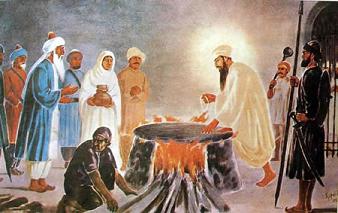
In the state of freedom, the Guru lives in the river like a fish.
Seeing the Divine, the light merged with the Light like a moth.
Consciousness connected with Infinite-Wisdom,
nothing entered awareness during torture like a deer.
In the Lotus-feet Sanctuary, the night was spent in joy-wealth like a bee.
The Guru never ceased to instruct, kept reciting the wisdom like a Babiha.
Perfection-oriented [Guru Arjan] recognized the natural inspired-company
as joy-fruit and love-flavor.
I am devoted to Guru Arjan.
–Bhai Gurdas, Var 24, Pauri 23
Martyrdom is a consequence of the struggle between the forces of evil and the invincible warrior for good, who remains unconquered to the end, because, he or she, has already conquered self (is already a mar-jeevra - the reborn). The would-be martyr does not bow to the will of evil but abides by the Will of the Creator Being (Bhana) while remaining true to conscience to the end. The ultimate victory is that of death-defying truthful conduct, justice and the righteous principle being upheld.
Sikhism which had been founded to transcend the division between Hindus and Muslims by preaching the gospel of the Fatherhood of God and the Brotherhood of man, was exceedingly galling to the bigoted mind of the Mughal Emperor Jahangir who had firmly reasserted and declared the 'Islamic Shariyat' as the foundation of his Government when he ascended the throne.
The heroic martyrdom of Guru Arjan Dev demonstrated once again the stark fact that religious persecution is sinful, because no one has the right to stand between a person and God, that violence in this field at least is futile, for religion cannot be inculcated by force. That there is no such thing as a belief that is not held voluntarily through a genuine spontaneous inner conviction. He laid down his life for a principle and his example generated a new impulse for calm suffering and sacrifice.
A saintly soul (a pavittar atma) revered by all, led the cause and confronted the evil of bigotry to uphold the principle of religious freedom - the ultimate martyrdom.
For only the martyrdom of such a person would awaken the spirit of righteous conduct and freedom in the ordinary people. Death was not pre-meditated, but was the inevitable consequence of the struggle (sangharsh) between good and evil.
For further information -
Commemorating 400th Parkash Year of Guru Tegh Bahadur Ji
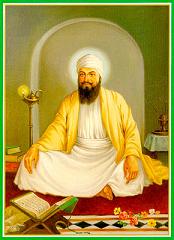
Year 2021 marked the 400th Parkash Year of Nanak IX, Guru Tegh Bahadur. To commemorate the life, mission and martyrdom of Guru Ji, the Society's acclaimed publication Guru Tegh Bahadur (1621-1675): The True Story has been revised and updated with Guru Ji's Gurbani by Society sewadar, S. Gurmukh Singh OBE. The Digital Edition has been made available to diaspora Sikh organisations for publication.
- Second Edition: Guru Tegh Bahadur (1621-1675) - The True Story under Publications
- Second Edition "Guru Tegh Bahadur: The True Story" previewed by renowned Dya Singh (Australia)
- First Edition "Guru Tegh Bahadur: The True Story" reviewed by renowned scholar Dr Hardev Singh Virk , published by The Sikh Review (Kolkata), Sikhnet, Asian Samachar and ResearchGate.
- Sri Guru Tegh Bahadur: An Overview of His Life and Bani
- Guru Tegh Bahadur - Calmness, Tranquility and Detachment. under Sikhism
Sikh Missionary Society UK Annual Report and Financial Statements
The Sikh Missionary Society (U.K.) is a charity. Our registered charity number is 262404. We are regulated by the Charity Commission to whom we are required to submit our annual report and financial statements, up-to-date information about our trustees and other administrative information.
Our annual reports are available to view-
- Constitution Amendments for 2023
- Annual Report and Financial Statements
- Information about the Sikh Missionary Society UK is also available via the Charities Commision website
We are pleased to inform the Sangat that the work on the construction of the new hall is now complete.
Due to the Covid-19 restrictions it was quite a difficult task but with the blessings of Guru ji, all the work has now been satisfactorily completed. Some changes were made to the original plan and also due to some extra work the final costs increased. Hence we appeal for donations, please consider to help support this effort -
Articles on Sikh Ideology & Identity
Current Affairs advisories from Sardar Gurmukh Singh OBE, Chair of the Sikh Missionary Society Advisory Board -
- The Sikhs; Their Religion and Tradition
- Guru Granth Sahib
- Who is my Guru?
- Sikh religious titles, duties and related skills
- Sikh weddings: Anand Karaj
- Mixed-marriages : Professing Non-Sikh Faith But Married in Gurdwara
-
Sikh Council UK Guidelines: Marriages in Gurdwaras where one partner is not of Sikh origin

- Women in Sikh Tradition
- Sikhism and the Status of Women
- Heritage of the Sikhs - The Sikh Martial Tradition
- Role of Sikh Women in 18th Century Khalsa Struggle
- The First Anglo-Sikh War - Amarpal Sidhu - Book Review
- A Sikh Approach to War and Peace
- Radicalization & Confused Government Policy
- Sikhism & Care of the Planet
- Sikhism & Ecological Issues
- Sikhism & The Earth Charter
-
Understanding types of Gurdwara and main Sikh groupings in the UK
(Report: Research into Sikh Presence and Relationships in the Region for East of England Faiths Council)

-
The UK Sikh Manifesto 2015-20: Sikh theo-political (piri-miri) objectives

-
Sikh Manifesto 2020-25

Further Reading
- His study about the Life and Martyrdom of Guru Tegh Bahadur, published as a book by The Sikh Missionary Society UK with the title - Guru Tegh Bahadur: The True Story"
- Articles by S. Gurmukh Singh can be read under Articles on Sikh Idealogy & Identity
- His weekly Current Sikh Affairs "News & Views" column in Panjab Times
- His monthly articles on SikhNet
Remembering Delhi Pogrom 1984
Sikhs worldwide remember the 1984 pogrom in which, according to official figures, at least 3,000 Sikhs were killed by organized mobs in Delhi in the first 3 days of November 1984. Thousands of Sikhs were also killed in other cities of India. While the terror of the human slaughter within such a short time was horrifying, the contrived completeness of the failure of the Indian administrative system was inexcusable.
Pogroms, genocides and human tragedies, should unite all right thinking, fair-minded people above communal and religio-ethnic divides so that lessons are learnt, and history does not repeat itself. The politics of forgetfulness must not be allowed to suppress the traditional Sikhi spirit of remembrance expressed in the daily Ardaas (supplication).

In an ever shrinking world, no one can remain immune from large scale selective massacre of one community and prolonged delay in the delivery of justice. We remember those who lost their lives in the Sikh genocide of November 1984 and their families who continue to be denied justice to this day.
Further Reading
British
Sikh
Inquiry
Investigation into Institutional Racism Against Sikhs due to their distinct Miri-Piri (theo-social) identity as a distinct people (Qaum).
The British Sikh Inquiry (BSI) project aims to record evidence which shows institutional bias against the Sikhs because they are “different”. Thus, “Institutional racism” was defined by Sir William Macpherson in the UK’s Lawrence report (1999) as:
“The collective failure of an organization to provide an appropriate and professional service to people because of their colour, culture, or ethnic origin. It can be seen or detected in processes, attitudes and behaviour that amount to discrimination through prejudice, ignorance, thoughtlessness, and racist stereotyping which disadvantage minority ethnic people.”
Institutional racism in the government and agencies, politics, local and national assemblies, the judiciary, the media, the health and educational systems and other public and private sector bodies is directed against a people like the Sikhs because they are seen to be “different”. They are different not just because of their visible identity in case of Amritdhari (initiated) Sikhs and Sikhs who keep turbans and beards but also due to their association with a way of life based on creed, culture and historical tradition as a distinct people.
There have been numerous recorded cases since the arrival of Sikhs in the UK from about mid-1950's, which show that Sikhs have been victims of institutional discrimination because of their qaumi (theo-national) way of life, values, behaviour and characteristics. Varying degrees of religious observance may be one characteristic.
Otherwise, “The Sikhs are a role model community and provide an exceptionally interesting example of successful integration whilst maintaining a very visible and distinctive religious identity.” (The Sikh Manifesto 2015-2020).
Findings of the prolonged Daniel Morgan murder investigation into Scotland Yard remind UK Sikhs of their own negative experience in dealing with public servants and ministers. The most recent example is the highly questionable "consultation" process used by the Office for National Statistics to decide if the Sikhs should be allocated own ethnic (Qaumi) tick box in Census 2021.
The British Sikh Inquiry (BSI) section at the Sikh Missionary Society UK aims to collate and preserve as part of British Sikh history, cases, news reports, briefings and investigative articles relating to institutional racism against British Sikhs as a distinct community in the British plural society.
Project co-ordinator:
Gurmukh Singh OBE: sewauk2005@yahoo.co.uk
(First contact by e-mail only).
Please visit the new section of the website -
Guidance on the wearing of Sikh Articles of Faith in the workplace and public spaces
Achieving this Guidance on the wearing of Sikh Articles of Faith in the workplace and public spaces by the Equalities and Human Rights Commission (EHRC) is an important step forward in recognition of the Sikh religious identity in the UK. The Sikh Missionary Society UK was represented by Gurmukh Singh (UK) in the drafting of the Equality and Human Rights Commission guidelines.
You should read this guidance if you require:
- clarification on how the law currently applies to the wearing of Sikh articles of faith
- examples of best practice in dealing sensitively and fairly with observers of the Sikh faith
- a tool to strengthen good relations by promoting greater understanding between Sikhs and others
- a guide for private and public sector organisations in terms of dignity and fairness at work, and service delivery with regards to the Sikh community, and in promoting good relations, and
- links to other guidance on this topic

Further Reading
- see Guidance on the wearing of Sikh articles of faith in the workplace and public spaces under Articles (also available in Panjabi)
-
Turban-wearing Sikhs are exempt from the need to wear head protection in the workplace
Sections 11 and 12 of the Employment Act 1989 as amended by Section 6 of the Deregulation Act 2015 exempts turban-wearing Sikhs from any legal requirement to wear head protection at a workplace.
-
Sikh Rehat Maryada
also available as PDF in
English
 and
Panjabi
and
Panjabi

Aim and Activities
The Aim of the Sikh Missionary Society is the "Advancement of the Sikh faith in the U.K and abroad" which is brought about by various activities:
To Produce and distribute books on the Sikh Faith in English and Panjabi, and other languages to enlighten the younger generation of Sikhs as well as non-Sikhs.
To Advise and support young students in schools, colleges and universities on Sikh issues and Sikh traditions. If you belong to an educational institution and would like more information on Sikhism please contact the Resource Centre.
To Arrange Classes, Lectures, Seminars, Conferences, Gurmat camps and the celebration of Holy Sikh Events.
To award prizes to children on the basis of their achievement and interest in the field of Sikh Faith and Panjabi Language.
To make available all Sikh Artefacts, Posters, Literature, Music, Educational Video's, DVD's and Multimedia CD-ROMs
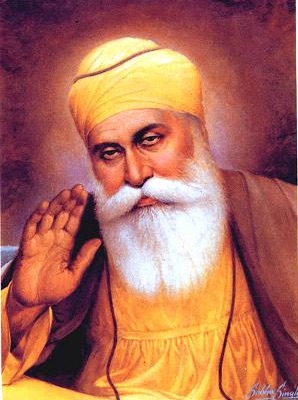
The Sikh Missionary Society U.K seeks financial and other help from Sikh Sangats and Gurdwaras to meet the objectives of the Society. The Society also acts as a Sikh Resource Centre and has over 1000 life and ordinary members from all over the U.K and abroad.
Catalogue of books and artefacts available at the Sikh Missionary Society UK
Today in Sikh History:
Departments
Read about the Sikh Missionary Society, its background History, activities and the managing committee. Learn more...
Browse our Book, Audio and Video library and read publications and articles in our Resource Centre. Learn more...
Find out more about hiring the Mata Sahib Hall for Birth, Engagement, Marriage, Akhand Path, Sehaj Path and more Learn more...
Ongoing Classes and Courses
Gurmukhi / Panjabi Classes
Learn to read, write and speak Panjabi.To find out more about Panjabi Classes at the Sikh Missionary Society please call us +44 (0) 20 8574 1902.
Times: Fridays 6.00 - 7.30 PM
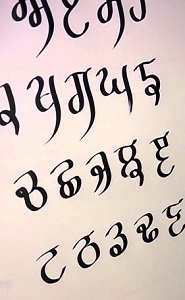

Kirtan Classes
Learn to play and sing KirtanYou can bring your own instruments for practice and accompaniement.
To find out more about Kirtan Classes at the Sikh Missionary Society please call us +44 (0) 20 8574 1902.
Times: Wednesdays 6.00 - 7.30 pm
